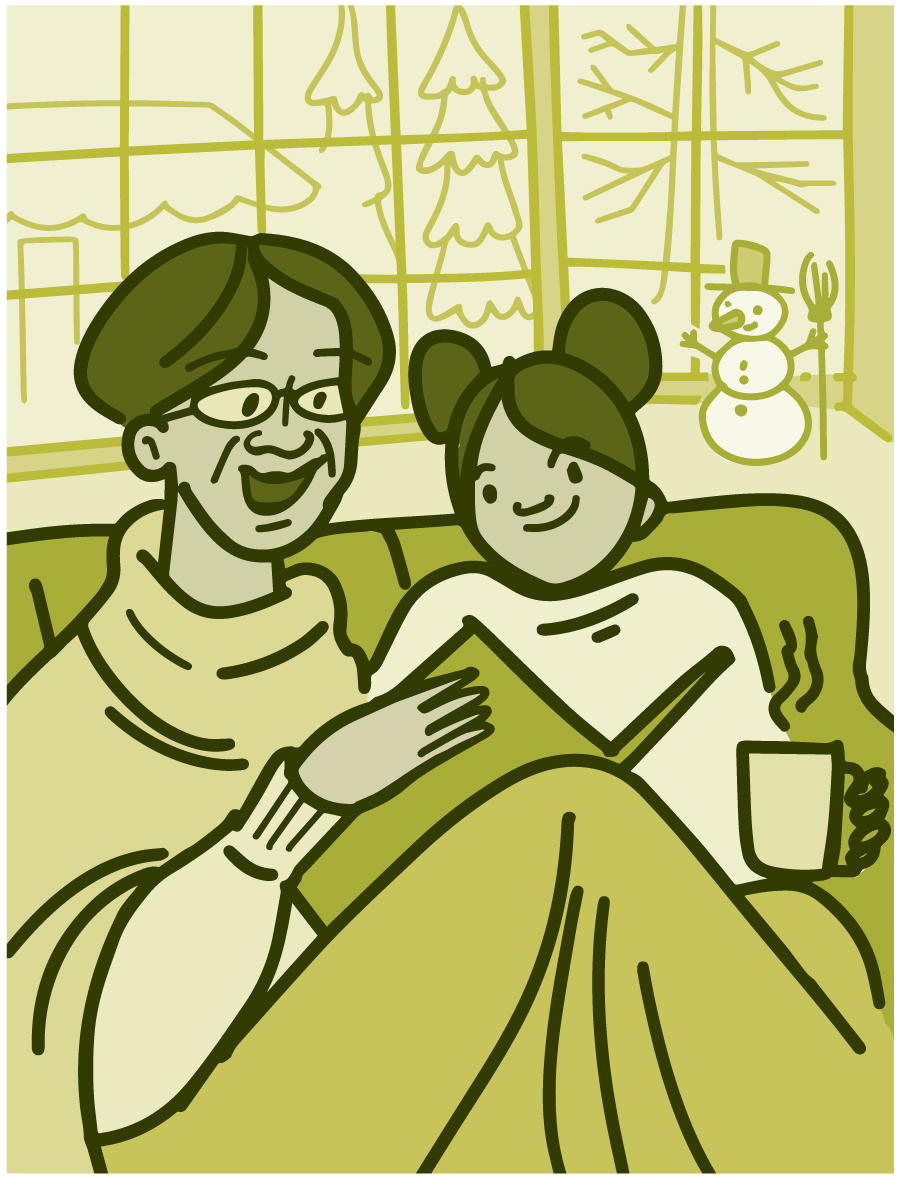The Hazards of Hypothermia
Stay Warm in Cold Weather

Winter brings many opportunities for cold-weather fun. But it can also bring dangerous temperatures. As you venture outdoors this season, take care to keep yourself safe from cold-weather hazards like hypothermia.
“Hypothermia is when the body’s core temperature decreases below 95 degrees Fahrenheit,” says Dr. Basil Eldadah, an NIH aging expert.
Hypothermia can happen when you’re exposed to very cold temperatures for too long. If your body temperature drops too low, it can affect your ability to think clearly, walk, or talk. So acting fast when you see signs of hypothermia is important.
Signs of mild hypothermia include cold feet and hands, shivering, a puffy or swollen face, or pale skin. You may also get sleepy, start to become clumsy, or become angry or confused.
“As hypothermia advances, there may be slurred speech, trouble walking, clumsiness, or stiff movements,” Eldadah explains. “Then, you may experience a slower heartbeat, a weak pulse, and slow or shallow breathing. It could even result in loss of consciousness in advanced stages.”
Anyone can get hypothermia when exposed to cold temperatures. But certain factors increase your risk. These include older age, young age, certain medications, and some illnesses. All can impact your body’s ability to regulate your temperature.
Certain diseases, like diabetes, heart disease, and hypothyroidism can impair your blood circulation. These kinds of diseases become more common with age. “A well-functioning circulatory system keeps our body temperature at the right place,” explains Eldadah.
Older adults may have difficulty controlling their body temperature for other reasons, too. With aging, our bodies have less ability to shiver and perform other internal actions that keep you warmer. Aging can also mean that you have less fat under your skin to insulate your body.
Certain conditions that are more common with age can make the cold more dangerous, too. Parkinson’s disease and arthritis can make it more physically difficult to get out of the cold. People with conditions that cause difficulty with thinking and memory, like dementia, may not dress appropriately for the weather changes.
“For older people, even mild exposure to cold environments can result in hypothermia,” says Eldadah. “People can get hypothermic in the summertime because their air conditioners are set at a very low temperature.”
But everyone needs to be careful when the temperatures drop. You can get hypothermia in cool weather just because you’re wet from sweat or rain.
“Be on the lookout for the signs and symptoms of hypothermia,” Eldadah says. Low body temperature can become dangerous before you know what’s happening.
The best way to prevent hypothermia is to protect yourself from the cold—indoors and outdoors. Bundle up if you have to go outside in cold weather. And remember to stay warm indoors and keep your home at a safe temperature. See the Wise Choices box for more tips to stay safe in cold weather.
NIH Office of Communications and Public Liaison
Health and Science Publications Branch
Building 31, Room 5B52
Bethesda, MD 20892-2094
Contact Us:
nihnewsinhealth@od.nih.gov
Phone: 301-451-8224
Share Our Materials: Reprint our articles and illustrations in your own publication. Our material is not copyrighted. Please acknowledge NIH News in Health as the source and send us a copy.
For more consumer health news and information, visit health.nih.gov.
For wellness toolkits, visit www.nih.gov/wellnesstoolkits.




